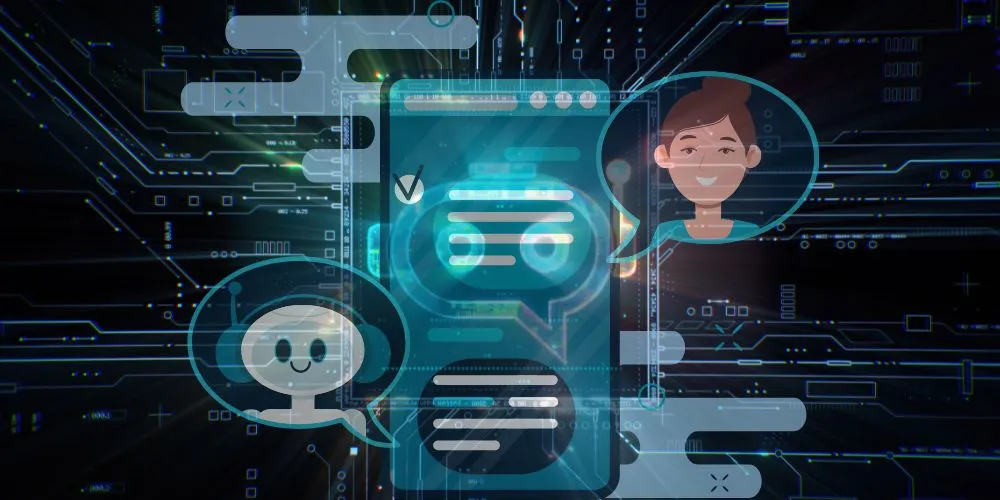Health Chatbots emerged as a revolutionary tool in the digital transformation era, reshaping the healthcare landscape by providing accessible, personalized, and real-time interactions. This article explores the significance of Health Chatbots, delving into their underlying technologies, diverse applications, and their transformative impact on patient engagement, information dissemination, and overall healthcare accessibility.
The Significance of Health Chatbots
Health Chatbots represent a pivotal shift in healthcare delivery, offering an innovative approach to patient communication and engagement. Their significance lies in the ability to provide instant, personalized, and round-the-clock assistance, fostering a proactive and patient-centric healthcare experience. By leveraging artificial intelligence (AI) and natural language processing (NLP), it empowers individuals to access information, monitor their health, and receive guidance in a conversational and user-friendly manner.
Enhancing Patient Engagement and Empowerment
One of the key significances of Health Chatbots is their role in enhancing patient engagement and empowerment. By offering a conversational interface, these chatbots create an interactive and accessible channel for individuals to seek information about their health, medications, and treatment plans. It fosters a sense of empowerment, as patients can actively participate in managing their well-being through personalized, real-time guidance.
Accessibility and Convenience in Healthcare Information
Health Chatbots contribute to improved healthcare accessibility by providing instant access to information. Individuals can inquire about symptoms, medications, or general health advice at any time, eliminating the constraints of traditional office hours in healthcare. This accessibility ensures that individuals can make informed health decisions promptly, contributing to proactive healthcare management.
Underlying Technologies of Health Chatbots
The realization of Health Chatbots is made possible by integrating advanced technologies, including artificial intelligence, natural language processing, and machine learning.
Artificial Intelligence for Intelligent Conversations
Artificial Intelligence (AI) forms the backbone of Health Chatbots, enabling them to engage in intelligent and context-aware conversations. Machine learning algorithms enable these chatbots to comprehend user queries, interpret medical information, and deliver relevant responses. It ensures that the interaction is conversational and tailored to the individual’s specific health needs.
Natural Language Processing for Seamless Communication
Natural Language Processing (NLP) is a crucial component that enables Health Chatbots to comprehend and respond to human language. This technology allows users to communicate with the chatbot using natural language, making the interaction more intuitive and user-friendly. NLP ensures that individuals can express their health concerns or queries in a manner that is comfortable and familiar.
Machine Learning for Personalized Assistance
Machine Learning algorithms embedded in Health Chatbots contribute to personalized assistance by learning from user interactions. The chatbots can adapt to individual preferences, understand patterns in health-related inquiries, and refine their responses over time. This continuous learning process enhances the accuracy and effectiveness of the chatbot in providing tailored health information.
Diverse Applications of Health Chatbots
Health Chatbots find applications across a spectrum of healthcare scenarios, from symptom checking to medication management, contributing to improved patient experiences and healthcare outcomes.
Symptom Checking and Initial Triage
One notable application of Health Chatbots is symptom checking and initial triage. Individuals can describe their symptoms to the chatbot, which uses AI and medical knowledge to provide preliminary assessments. It helps users gauge the severity of their symptoms and guides them on whether to seek immediate medical attention or pursue at-home remedies.
Medication Management and Adherence
Health Chatbots are crucial in medication management and adherence. They can send medication reminders, provide information about dosage schedules, and answer queries related to potential side effects. This proactive support enhances medication adherence, improving health outcomes for individuals managing chronic conditions.
Mental Health Support and Well-Being
Addressing mental health concerns offers a supportive environment for individuals seeking information or guidance. These chatbots can provide coping strategies, mindfulness exercises, and information about mental health resources. This application contributes to the destigmatization of mental health discussions and encourages individuals to prioritize their well-being.
Challenges and Future Developments in Health Chatbots
While it presents numerous benefits, challenges such as data privacy, accuracy of medical information, and user trust must be addressed. Looking forward, developments in these areas will be crucial for maximizing the potential of Health Chatbots in healthcare delivery.
Ensuring Data Privacy and Security
Given the sensitive nature of health-related conversations, ensuring robust data privacy and security measures is paramount for Health Chatbots. Future developments may focus on implementing advanced encryption protocols, stringent access controls, and transparent data-sharing practices to build and maintain user trust.
Enhancing the Accuracy of Medical Information
The accuracy of medical information provided by Health Chatbots is essential for building user confidence. Ongoing developments may involve continuous refinement of chatbot algorithms through collaboration with healthcare professionals, ensuring the information delivered is up-to-date, evidence-based, and aligned with medical guidelines.
Building User Trust through Transparent Communication
Building and maintaining user trust is crucial for the widespread adoption of Health Chatbots. Future developments may emphasize transparent communication about the capabilities and limitations of the chatbot, ensuring that users understand the context in which the chatbot operates and feel confident in relying on its guidance for certain healthcare inquiries.
Conclusion
Health Chatbots stand at the forefront of healthcare innovation, transforming how individuals access and manage healthcare information and their overall well-being. Their significance in enhancing patient engagement, providing accessible healthcare information, and offering personalized assistance underscores their potential to revolutionize the delivery of healthcare.
As technology evolves and challenges are addressed, they are poised to become integral partners in the journey towards more patient-centric, accessible, and proactive healthcare. The dynamic landscape of digital health solutions serves as a testament to the boundless possibilities of technology in enhancing healthcare accessibility and empowering individuals to take charge of their health.





